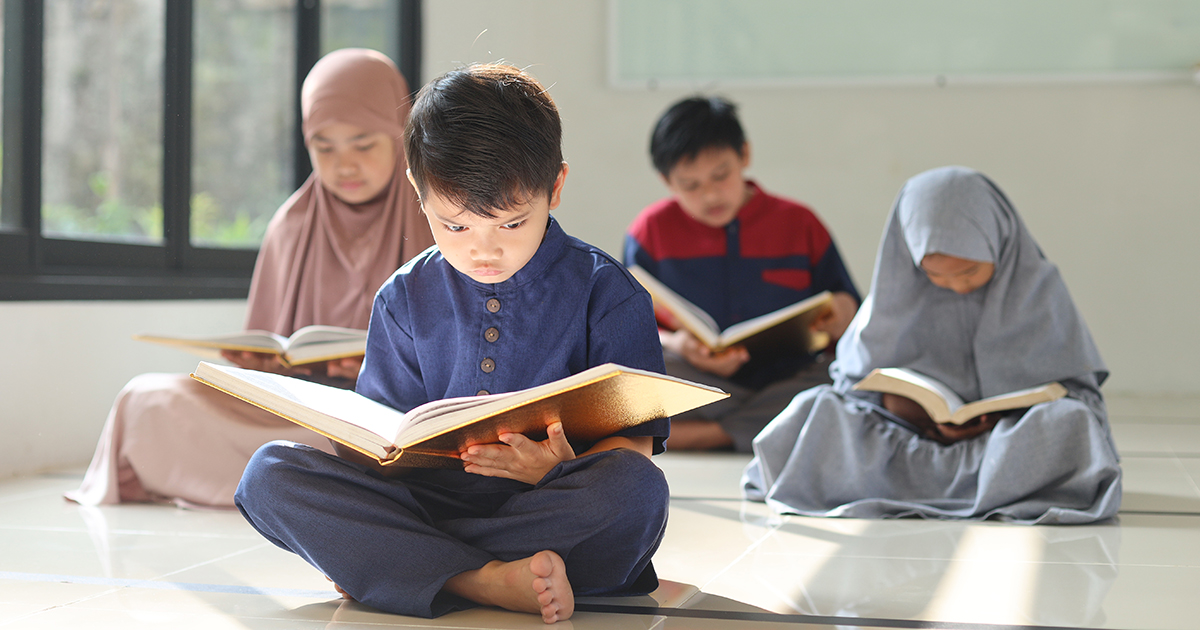Islamic Studies for Kids: Building a Strong Foundation in Faith and Values is essential in today’s world. As children navigate their formative years, instilling a sense of identity and understanding of their faith becomes increasingly important. These early lessons shape not only their knowledge but also their character.
In a rapidly changing society, children need guidance that aligns with Islamic teachings. This foundation helps them develop strong moral values while fostering a deep connection to their beliefs. By exploring the principles of Islam through engaging methods, we can empower our kids to grow into compassionate and responsible individuals.
Let’s dive into how we can provide meaningful Islamic education that resonates with young minds!
Understanding the Importance of Islamic Studies for Kids
Understanding the importance of Islamic Studies for kids involves recognizing how critical early education is in shaping their worldview. These studies provide a framework through which children can comprehend their faith and its teachings.
By engaging with Islamic concepts, children learn about compassion, justice, and community responsibility. This foundational knowledge enriches their spiritual lives and nurtures positive character traits.
Moreover, integrating Islamic Studies into daily learning reinforces cultural identity. Kids who grasp the significance of their heritage often feel a stronger connection to their communities.
As they explore religious stories and historical figures, youngsters develop empathy and respect for others’ beliefs too. This understanding paves the way for fostering tolerance in an increasingly diverse society.
Incorporating these lessons early on cultivates not only informed Muslims but also well-rounded individuals ready to contribute positively to the world around them.
Age-appropriate Curriculum for Islamic Studies
When designing an age-appropriate curriculum for Islamic Studies, it’s essential to cater to the developmental stages of children. Younger kids thrive on stories and visuals that introduce basic concepts like Allah’s love, prayer, and kindness. Engaging them with colorful illustrations can spark their interest.
As they grow older, lessons can become more interactive. Discussion-based learning helps pre-teens explore values like honesty and compassion in greater depth. Incorporating group activities encourages teamwork while reinforcing these principles.
For teenagers, a more analytical approach works well. They can study historical contexts and modern applications of Islamic teachings. This critical thinking fosters a deeper understanding and connection to their faith.
Flexibility is key throughout all ages. Adapting content based on individual interests ensures that learning remains relevant and impactful as they mature in their spiritual journeys.
Teaching Methods for Effective Learning
Engaging children in Islamic studies requires thoughtful teaching methods. Interactive activities can spark curiosity and encourage participation. Using storytelling techniques to convey lessons from the Quran makes learning memorable.
Visual aids, such as colorful charts or videos, help clarify complex concepts. These resources allow kids to connect emotionally with their faith while enhancing understanding.
Group discussions foster a collaborative environment where children feel comfortable expressing themselves. This method also nurtures critical thinking skills as they explore religious teachings together.
Incorporating hands-on projects encourages creativity and reinforces lessons learned. Crafting art related to Islamic traditions can deepen appreciation for cultural practices.
Technology plays a significant role too. Educational apps designed for kids make studying fun and accessible anytime, anywhere. Combining traditional methods with modern tools enriches the overall learning experience, making it relevant and exciting for young minds.
Incorporating Values and Morals in Islamic Studies
Incorporating values and morals into Islamic studies is essential for nurturing well-rounded individuals. Children learn best when they see the practical application of their faith in everyday life.
Lessons can be designed to highlight key Islamic principles such as honesty, kindness, and respect. Storytelling is a powerful tool here; share stories from the Quran or Hadith that emphasize these virtues.
Engaging children through discussions encourages them to think critically about moral dilemmas they might face. This interactive approach helps reinforce their understanding of right and wrong.
Additionally, role-playing scenarios allow kids to practice virtuous behavior in a safe environment. By experiencing situations firsthand, they internalize these lessons more effectively.
Integrating arts and crafts can also be beneficial. Creating projects around themes like charity or community service further solidifies the importance of these values in their lives.
Online Resources for Teaching Islamic Studies to Kids
The digital age offers a wealth of resources for teaching Islamic Studies to kids. Websites dedicated to Islamic education provide engaging content that is both informative and interactive. These platforms often include lesson plans, activities, and multimedia tools that cater to different learning styles.
Apps designed for children can make learning fun with games and quizzes centered around Islamic teachings. They help reinforce the concepts in an enjoyable way, making it easier for kids to remember what they learned.
YouTube also hosts numerous channels focused on Islamic education. Animated stories about prophets or short lessons on values can captivate young minds while imparting essential knowledge.
Moreover, online forums allow parents and educators to share experiences and resources. This community support fosters collaboration in enhancing children’s understanding of their faith through innovative approaches.
Creative Ways to Make Learning Fun and Engaging
Making Islamic studies enjoyable for kids can transform their learning experience. One effective method is through interactive storytelling. Use tales from the Quran or Hadith, and encourage children to act out these stories. This hands-on approach helps them connect with the material on a personal level.
Incorporating games into lessons also boosts engagement. Think of quizzes, puzzles, or even scavenger hunts based on Islamic teachings. Children love competition and teamwork; it makes learning feel like play.
Arts and crafts are another fantastic avenue. Encourage kids to create posters that illustrate Islamic values or important events in history. These creative projects allow for expression while reinforcing key concepts.
Using technology can enhance understanding too. Educational apps designed around Islamic teachings can make study sessions more dynamic and fun, keeping your child motivated to learn about their faith.
The Impact of Islamic Education on Children’s Development
Islamic education plays a crucial role in shaping children’s moral compass. By introducing them to core principles from an early age, kids learn empathy, respect, and integrity.
The teachings of Islam encourage curiosity and critical thinking. As children explore religious texts and stories, they develop analytical skills that are vital for their overall growth.
Engagement with the community is another significant impact. Through participation in mosque activities or study groups, children learn about teamwork and social responsibility.
Moreover, Islamic values instill a sense of identity. When children understand their faith deeply, they cultivate pride in being part of a rich cultural heritage.
This foundation also promotes resilience. With knowledge comes understanding; as challenges arise, equipped minds can navigate complexities with confidence.
Conclusion: Nurturing Strong Muslim Identity in Children through Islamic Studies
Nurturing a strong Muslim identity in children is vital for their personal and spiritual growth. Islamic studies provide more than just knowledge; they instill values, morals, and a sense of belonging to the community. By engaging kids with age-appropriate lessons that are interactive and relevant, we lay the groundwork for lifelong learning.
The goal is to help them understand their faith on a deeper level while fostering critical thinking skills. Children equipped with this foundational education can navigate life’s challenges with confidence and compassion. As families embrace these teachings at home or through online resources, they create an environment where spirituality thrives.
Investing time in Islamic studies fosters resilience and character in young Muslims. This journey not only enriches their understanding but also strengthens their connections to both family traditions and broader communities. The impact of these early teachings can resonate throughout their lives as they grow into informed individuals who contribute positively to society while staying true to their faith.

